Table of Contents
You've probably seen it: bright green juice taking over your social media feed, touted as the next big thing for health. It's celery juice, and claims about its "detox benefits" are everywhere. But is it really a magical elixir, or just another health fad? I know, I know, it's tempting to jump on the bandwagon, especially when you hear about glowing skin and boosted energy. We are going to explore the truth about celery juice, separating fact from fiction. We'll look at what nutrients this drink actually offers, and if those “detox benefits” are legit. I’ll also cover the potential downsides, who might want to skip this trend, and how to make your own juice at home if you’re curious. Get ready to uncover the real deal about celery juice and decide for yourself if it deserves a spot in your routine.
The Buzz Around Celery Juice Detox Benefits
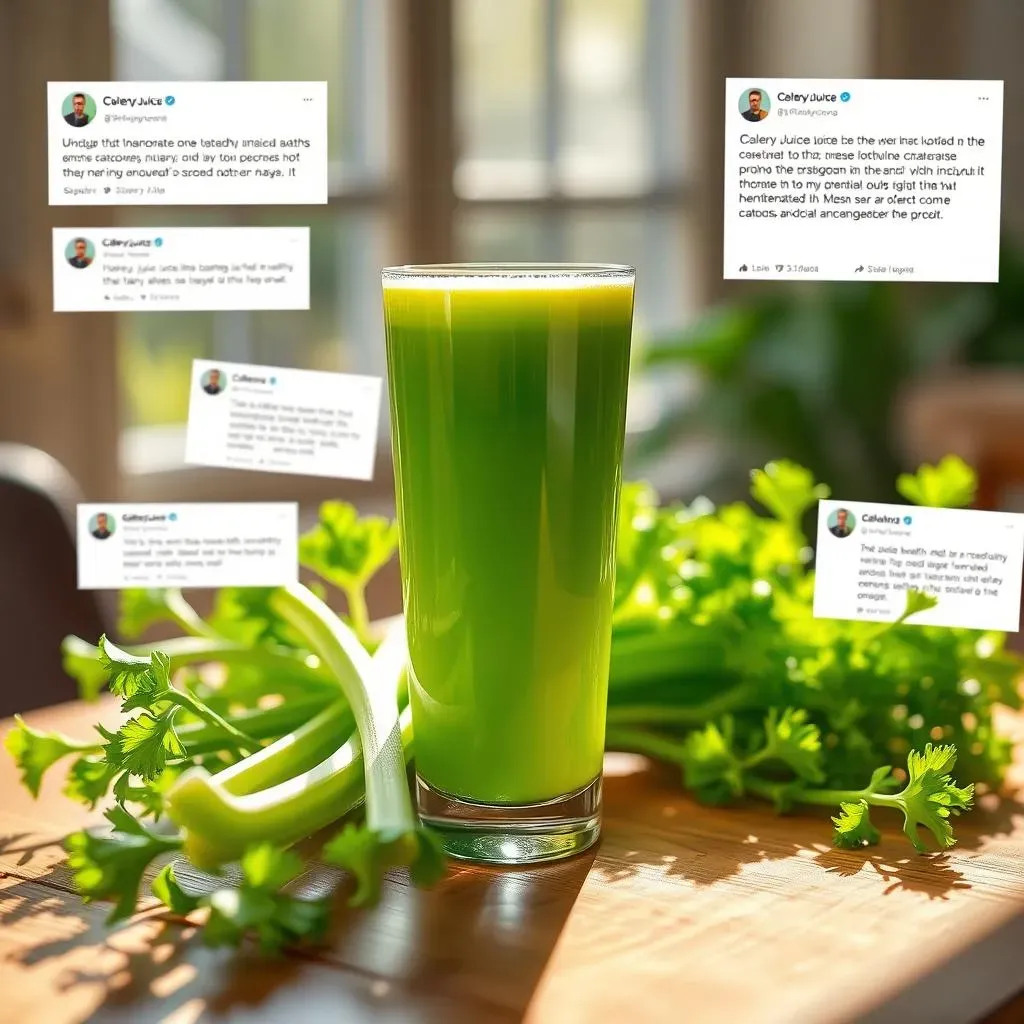
The Buzz Around Celery Juice Detox Benefits
The Green Drink Taking Over
Okay, let's be real, celery juice is everywhere right now. It’s like one day no one cared about this green stalk, and the next it's the superstar of the health scene. You see influencers chugging it, health gurus swearing by it, and your neighbor is probably growing their own celery now. But what’s the big deal? It's not like celery itself is a new thing. The hype is all about this idea that juicing it unlocks some kind of magic, especially when it comes to "detoxing" your body.
People are claiming celery juice can clear up skin, boost energy, and even fix serious health issues. It's become this sort of miracle drink in the health and wellness world, and it’s hard to ignore the buzz. But we need to take a step back and see what’s actually behind all those claims. Is it just a trend, or is there something to it?
Claims vs. Reality
So, what are these so-called benefits that everyone is talking about? Well, the main thing you hear about is "detoxing." People believe that celery juice helps your body get rid of nasty toxins, like a super-powered cleaning crew. They say it can flush out your liver, clean your gut, and make your skin glow. Some even think it can help with things like inflammation and even some chronic illnesses. That's a lot of power for one green juice.
But here's the kicker: most of these claims are based on personal stories and not science. It's like that time your friend swore that eating only purple food for a week made them smarter – sounds cool, but probably not true. The problem is that when something gets popular, it’s easy to get caught up in the excitement, and sometimes we forget to ask for proof.
Claim | Reality |
|---|---|
Detoxifies the body | Body has its own detoxification system (liver, kidneys, etc.) |
Cures chronic illness | No scientific evidence to support this. |
Makes your skin glow | May improve hydration, but not a magical cure. |
The Power of Hype
It’s no surprise that celery juice has taken off. We're always looking for a quick fix, a simple solution to our health problems. The idea of drinking a juice and suddenly feeling amazing is very tempting. Plus, the internet is a fantastic place for trends to spread like wildfire. One person has a good experience, they share it, and suddenly everyone's doing it.
But here's the thing: just because something is popular doesn't mean it's good for everyone. We need to be critical of what we see and hear online. So, let’s dig a little deeper and see what this celery juice really has to offer, beyond the hype.
Celery Juice: Nutrition and Real Health Perks
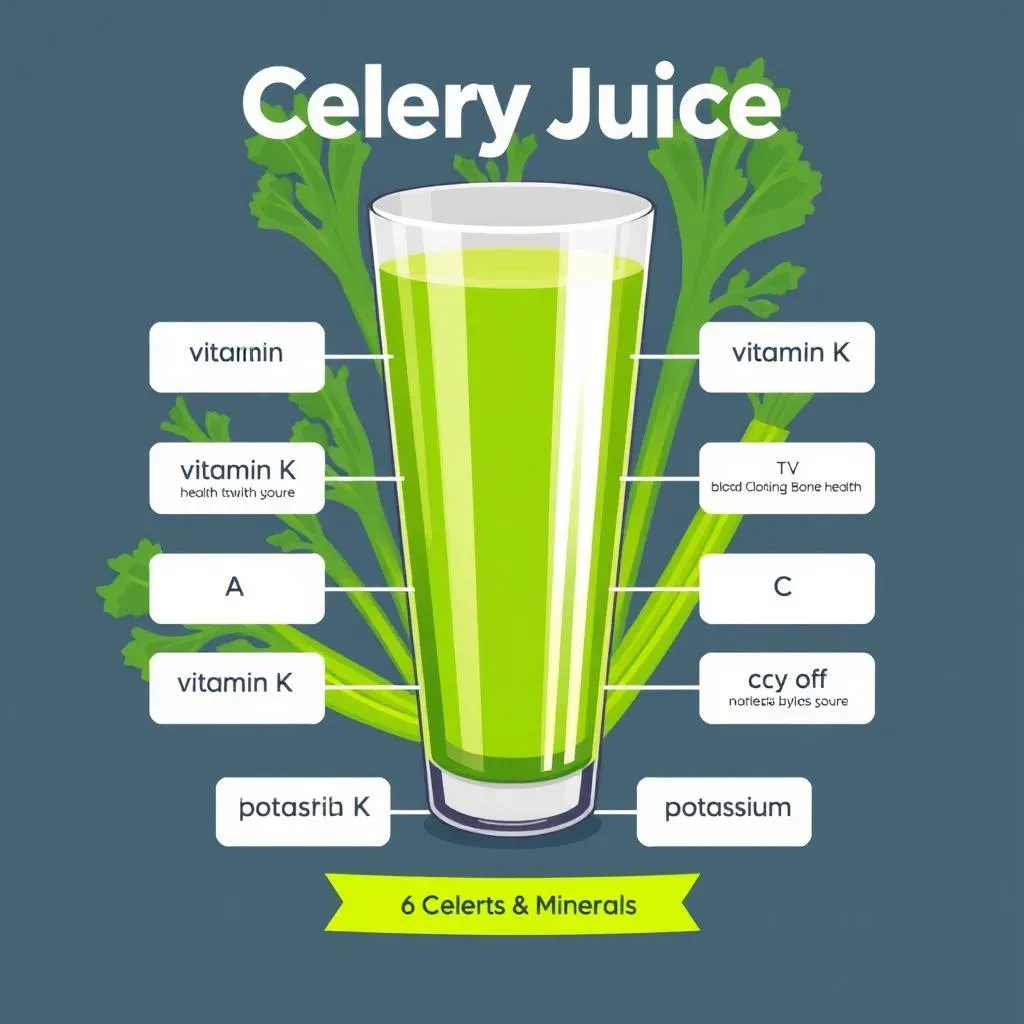
Celery Juice: Nutrition and Real Health Perks
Okay, so we've talked about the hype, now let’s get into the nitty-gritty of what celery juice actually contains. It’s not just green water, you know. Celery, in its natural form, is packed with vitamins and minerals, and some of that goodness does transfer to the juice. We're talking about things like vitamin K, which is great for blood clotting and bone health. It also has a decent amount of vitamin A, which is good for your eyes and skin, plus some vitamin C, an antioxidant that helps keep your immune system strong. And let's not forget potassium, an electrolyte that’s important for keeping your body's fluid balance in check. It’s basically like a mini multivitamin, but in juice form.
Beyond the vitamins, celery juice is also low in sugar, which is a plus compared to some other fruit juices. That's why some people find it refreshing. It's mostly water, so it can definitely help with hydration, especially if you struggle to drink enough water during the day. Think of it like a slightly more flavorful water that comes with some extra perks. Now, I'm not saying it's a magical cure-all, but it does have some good stuff going on. It's important to remember that juicing removes the fiber, which is a bummer since fiber is super important for digestion. You're basically getting the water and the micronutrients, but missing out on the roughage. Still, let’s not throw the baby out with the bathwater; there are some real benefits to be found here.
Nutrient | Benefit |
|---|---|
Vitamin K | Blood clotting, bone health |
Vitamin A | Eye health, skin health |
Vitamin C | Immune system support, antioxidant |
Potassium | Electrolyte, fluid balance |
Water | Hydration |
Celery Juice Cleanses: Are They Safe or Just Hype?
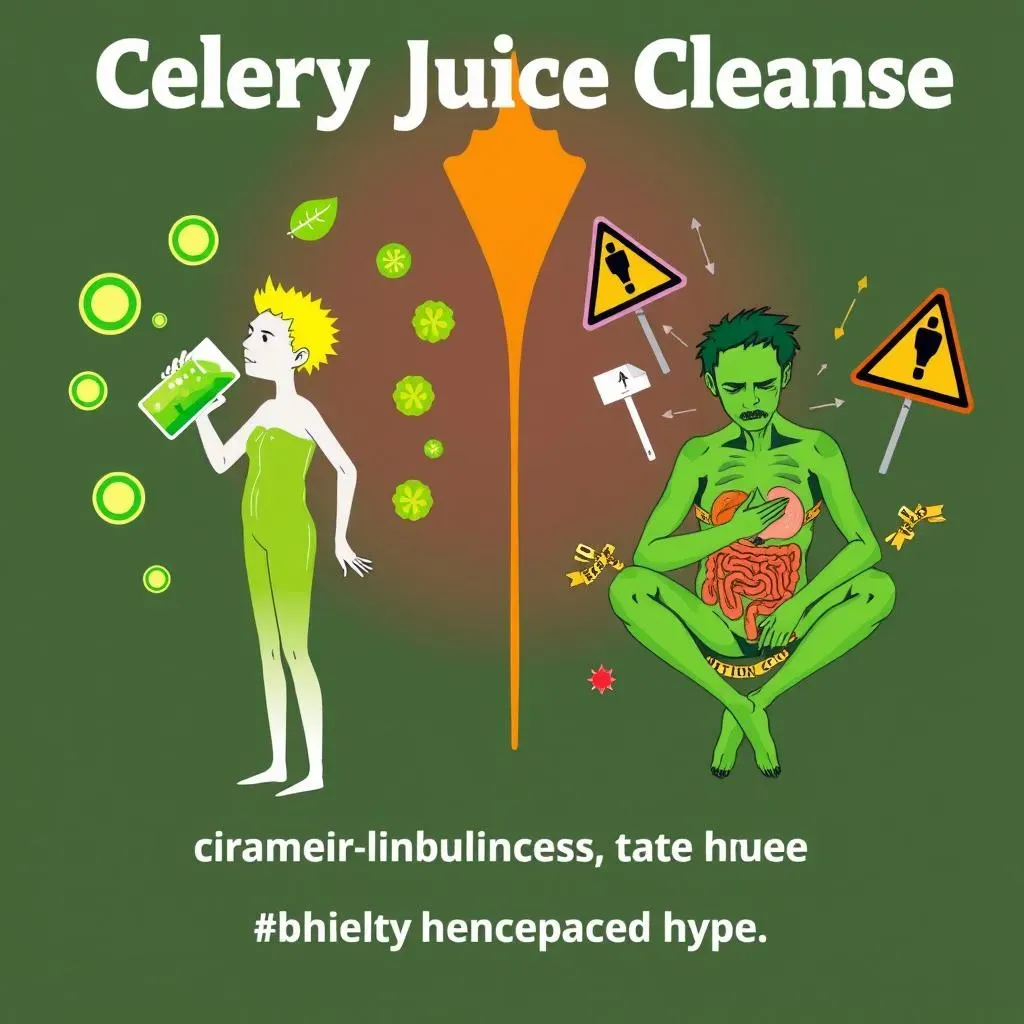
Celery Juice Cleanses: Are They Safe or Just Hype?
Alright, let's talk about celery juice cleanses. You see people doing these, right? They're going all-in on just celery juice for a day, maybe even longer, promising a total body reset. The idea is that by only drinking juice, you’re giving your digestive system a break and helping your body flush out all those "toxins" we talked about. Sounds good in theory, but here's the thing, our bodies are pretty amazing at cleaning themselves out without needing a juice-only diet. Your liver and kidneys work hard every single day to filter out waste, and they don't need a celery juice vacation to do their job.
Now, what's the real problem with these cleanses? Well, first off, they're usually super restrictive. You're cutting out solid food, which means you're missing out on a lot of important nutrients. You need a balanced diet with protein, carbs, and fats to keep your body running smoothly. It's like trying to drive a car without gas, you might go a little way, but you're not going to get very far. And when you're only drinking juice, you're not getting any fiber, which is crucial for healthy digestion. Fiber is the stuff that keeps things moving, and without it, your gut might not be too happy. Plus, these cleanses can sometimes lead to disordered eating patterns, which is definitely something to avoid.
Cleanse Aspect | Potential Issue |
|---|---|
Restrictive Diet | Nutrient deficiencies, low energy |
Lack of Fiber | Digestive problems, constipation |
Disordered Eating | Unhealthy relationship with food |
The NotSoGood Side of Celery Juice
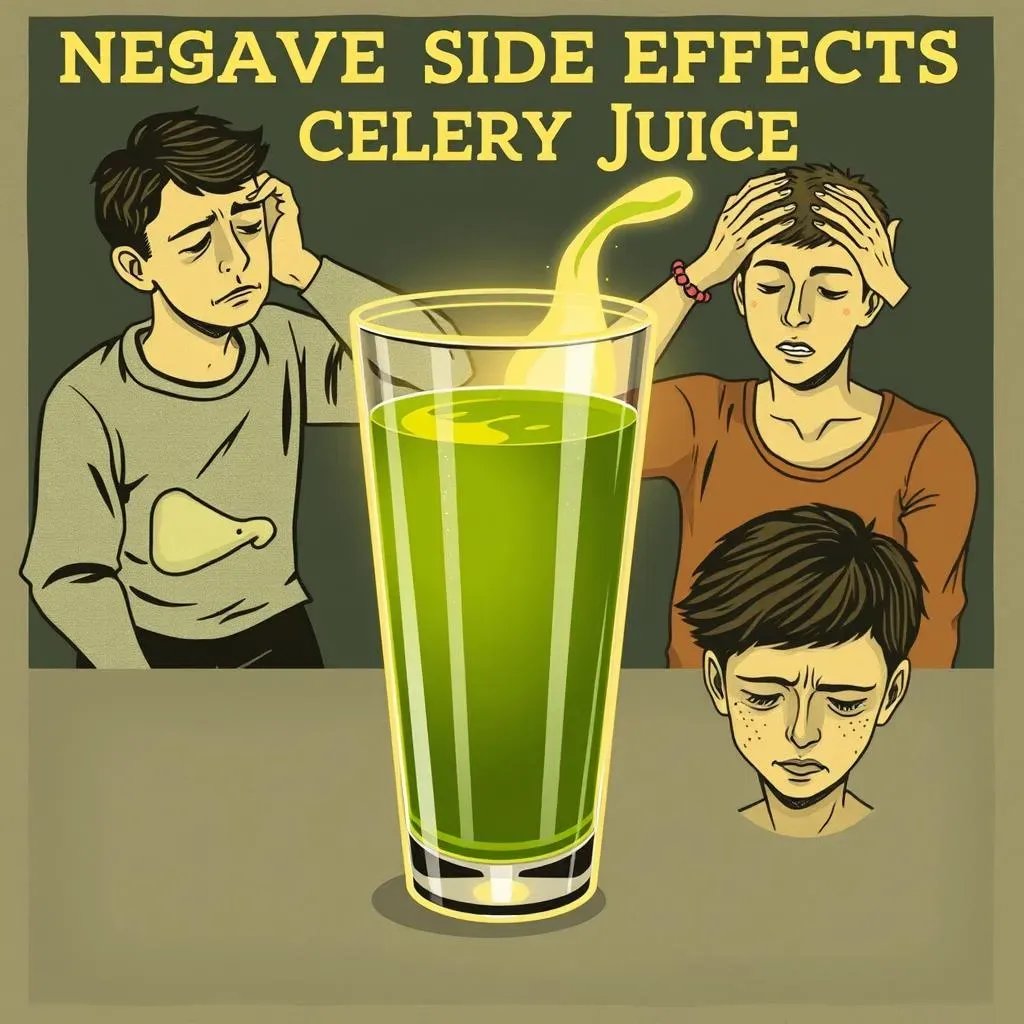
The NotSoGood Side of Celery Juice
Sodium and the Salt Shocker
Okay, so we've been chatting about all the potential good stuff in celery juice, but let's not forget that there's another side to the story. One thing you might not expect is that celery juice actually contains a decent amount of sodium. Now, for most people, this isn't a huge deal, but if you're watching your salt intake, maybe because you've got high blood pressure or some other heart issue, it's something to pay attention to. It's not like a bag of chips, but it does add up, especially if you're chugging it every day. It's that sneaky kind of sodium that you don't see coming, like that extra pinch of salt your grandma puts in her cookies.
Also, let’s not forget that many people strain their celery juice, removing the pulp. That means you're losing all that lovely fiber, which is a big bummer for your digestive health. Fiber is like the broom of your gut, sweeping everything along and keeping things regular. Without it, you could be setting yourself up for some tummy troubles. So, while you might be getting some vitamins and hydration, you're missing out on the fiber benefits that come with eating the whole stalk. It’s like getting a fancy car but forgetting the wheels – it looks cool, but it ain't going anywhere.
Potential Issue | Explanation |
|---|---|
Sodium Content | May be a concern for people with high blood pressure or heart issues. |
Lack of Fiber | Straining removes fiber, which is important for digestion. |
Digestive Drama and Other Discomforts
Now, let’s talk about some of the not-so-glamorous side effects. Some people who start drinking celery juice, especially if they go hard and fast, might experience some digestive drama. We're talking bloating, gas, and even changes in bowel movements. It's like your gut is suddenly thrown into a mosh pit and doesn't know what's happening. This isn't necessarily a sign that you're "detoxing," it's more likely that your body is just reacting to the sudden change in your diet, and the high water content, and the sodium. It’s like when you try a new workout and your muscles scream at you the next day – it's your body’s way of saying, "Whoa, what was that?"
And it's not just the digestive stuff. Some people also report feeling tired, getting headaches, or even having skin breakouts when they start drinking a lot of celery juice. It's not a one-size-fits-all kind of thing, and what works for your friend might not work for you. It’s essential to listen to your body and not just blindly follow the hype. If you're feeling worse, it might be a sign that this green drink isn't your thing. It’s like that pair of shoes that looks amazing but gives you blisters – sometimes you just gotta say, “No thanks.”
- Digestive issues: Bloating, gas, changes in bowel movements.
- Other side effects: Fatigue, headaches, skin breakouts.
Who Should (and Shouldn't) Drink Celery Juice?
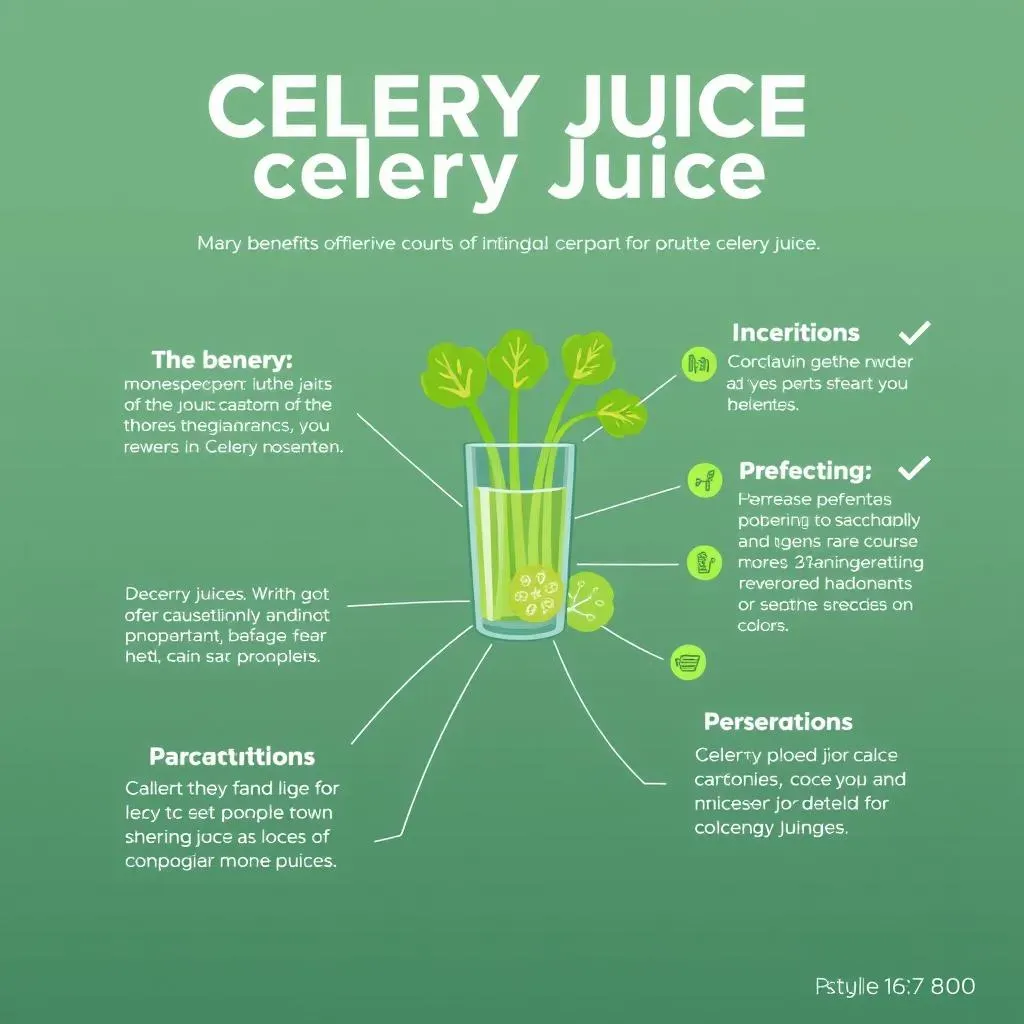
Who Should (and Shouldn't) Drink Celery Juice?
Okay, so after all that, who should actually be reaching for the celery juice, and who should maybe give it a pass? Well, if you're someone who struggles to drink enough water, and you're looking for a low-sugar, slightly flavored way to hydrate, then celery juice could be a decent option. It's got those vitamins and minerals we talked about, and it's certainly better than reaching for a sugary soda. If you're already eating a balanced diet, and you're just looking for an extra boost of nutrients, then it might be a fun addition to your routine. But, if you're expecting it to be some kind of miracle cure for all your health problems, then you might be setting yourself up for disappointment. It's like buying a lottery ticket – you might win, but don't bet the farm on it.
On the flip side, there are definitely some folks who should be a little cautious with the green stuff. If you have a history of digestive problems, like IBS, then you might want to start slow and see how your body reacts. The high water content and the sodium could cause some tummy trouble. Also, if you're pregnant or breastfeeding, it's always a good idea to chat with your doctor before making any big changes to your diet, including adding a bunch of celery juice. And if you’re on any medications, especially those that affect your kidneys or your blood pressure, it’s a must to talk to your healthcare provider. Celery juice isn't a magic bullet and it can interact with some medications. It's like mixing paint colors – some combinations work great, but others can be a total disaster. Better safe than sorry, right?
Who Might Benefit | Who Should Be Cautious |
|---|---|
People needing hydration | Those with digestive issues (IBS) |
Those seeking extra nutrients | Pregnant or breastfeeding individuals |
Those wanting low-sugar option | People on certain medications |
Making Celery Juice at Home: A Simple HowTo
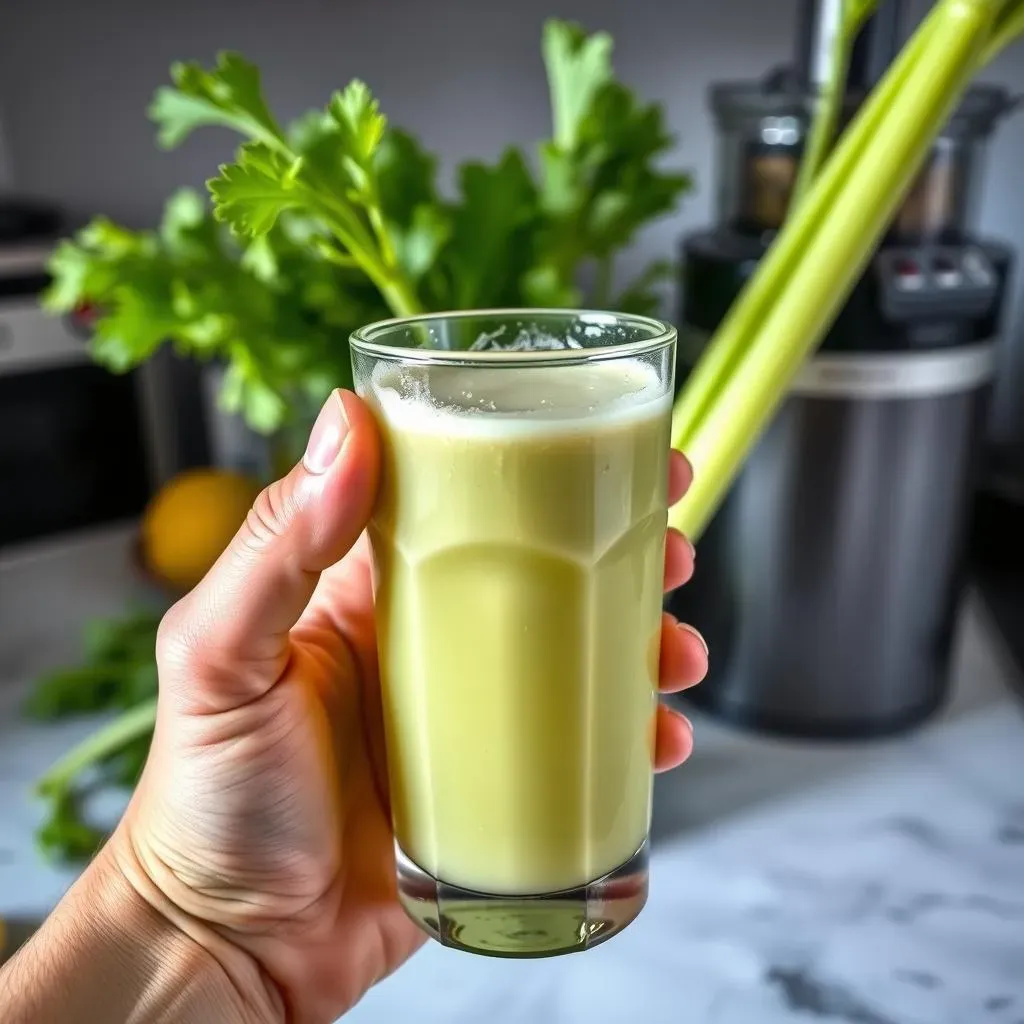
Making Celery Juice at Home: A Simple HowTo
The Basic Gear
Alright, so you're ready to try making your own celery juice? Awesome! You don't need a fancy science lab to do it, just a few basic things. First, you'll need celery, obviously. Get yourself a nice bunch, organic if you can, and give it a good wash. Now, for the juicing part, you've got a couple of options. If you have a juicer, that's the easiest route. Just chop up the celery and feed it through, and you'll get your juice. If you don't have a juicer, don't worry, you can still make it with a blender. You’ll also need a strainer or cheesecloth to separate the pulp from the juice if you are using a blender. It’s like making a smoothie, but with a little extra step to get rid of the solids. It might sound complicated, but I promise, it's not. Think of it like making a simple recipe – you just need the right ingredients and the right tools.
It’s important to remember that the quality of your ingredients affects your final result. If your celery is old and wilted, your juice won't taste as fresh and might not be as nutritious. So, choose your celery wisely! It's like picking the right paint for a masterpiece, you want the colors to be vibrant and the canvas to be in good shape. And remember to wash your celery thoroughly, even if it’s organic. You don’t want any unwanted guests in your juice. This prep step is as important as the actual juicing process itself.
Juicing with a Juicer vs. a Blender
Okay, let's break down the juicer versus blender debate. If you have a juicer, it's pretty straightforward. Just chop your celery into smaller pieces, feed them into the juicer, and out comes the juice. Juicers are designed to extract the liquid while leaving the pulp behind, so you get a nice, smooth juice. It's like having a specialized tool for the job. On the other hand, if you're using a blender, you’ll need to chop your celery and add some water to help it blend. Once it’s all smooth, you’ll need to strain the mixture through a fine-mesh sieve or cheesecloth to remove the pulp. It's a bit more work, but totally doable if you don't have a juicer. The blender method is like using a multi-tool, it gets the job done, but you need to put in a little more effort. The key is to strain it well, otherwise you’ll have a chunky juice, and nobody wants that!
Regardless of which method you choose, remember to do it fresh. Celery juice is best consumed right away. It’s like a freshly brewed cup of coffee, it tastes best when it’s still hot (or in this case, freshly made). You can store it in the fridge for a little bit, but it will lose some of its nutrients over time. So, if you're going to make it, drink it up! Now, let's look at the steps for each method:
Method | Steps | Pros | Cons |
|---|---|---|---|
Juicer | Chop celery, feed into juicer | Quick, easy, smooth juice | Requires a juicer |
Blender | Chop celery, blend with water, strain | No special equipment needed | More steps, can be messy |
Tips for the Best Celery Juice
Alright, now that you know the basics, let’s talk about some tips to make your celery juice even better. First, always use fresh celery. You want those stalks to be crisp and firm, not limp and sad. If your celery is looking a little tired, it’s not going to make the best juice. Second, make sure to wash your celery really well. You don't want any dirt or pesticides ending up in your drink. Third, drink it on an empty stomach. Some people say this helps with absorption. It’s like starting your day with a clean slate, allowing your body to fully take in the nutrients.
And lastly, don't add anything to it! Pure celery juice is what we’re after. No lemon, no ginger, just straight-up celery. You can always add other stuff later if you want, but try it plain first. It’s the only way to see if you like the taste and if it’s working for you. It's kind of like trying a new dish for the first time – you want to taste the individual flavors before mixing things up. And remember, listen to your body. If you start feeling unwell, don't force it. It's all about finding what works best for you, and sometimes, that means going back to the basics.
Common Questions About Celery Juice, Answered
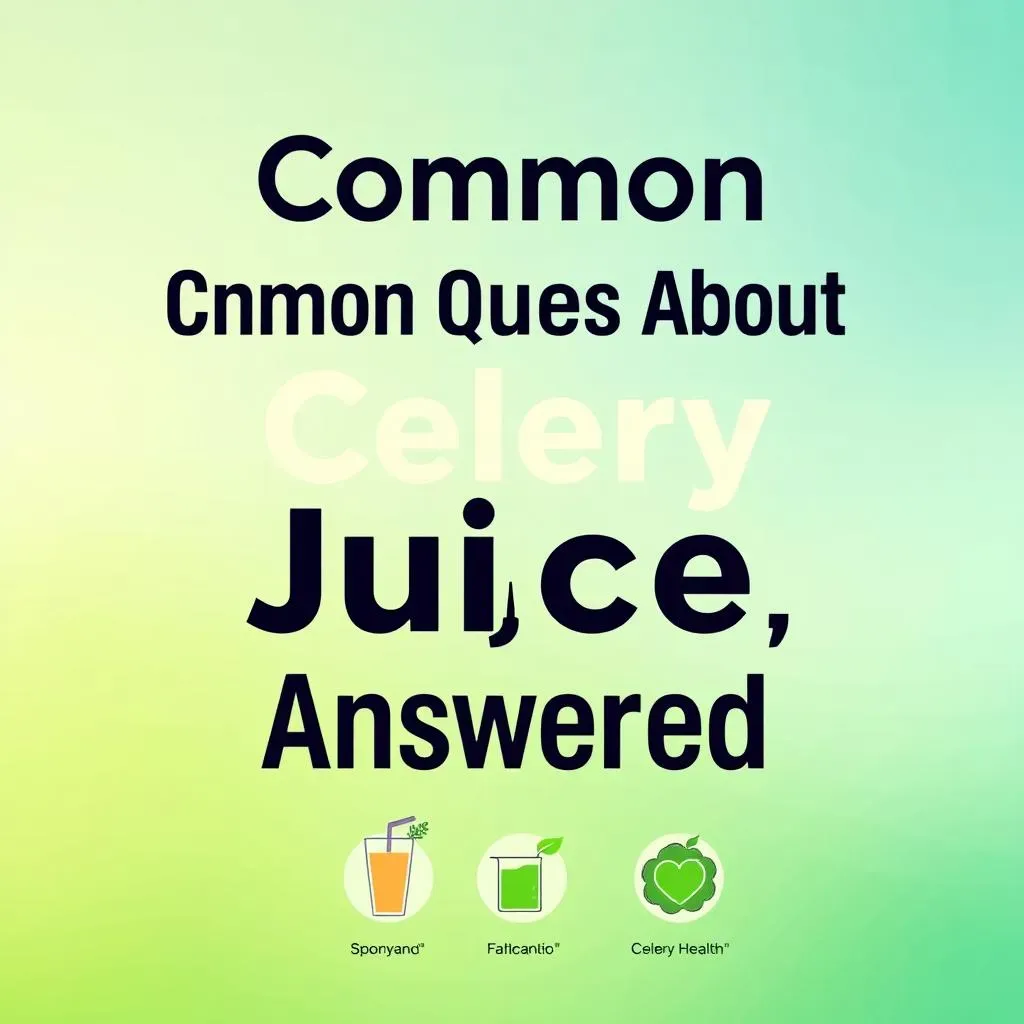
Common Questions About Celery Juice, Answered
Okay, so we've covered a lot about celery juice, from the hype to the how-to. But I know you probably still have some questions swirling around in your head. So, let's tackle some of the most common ones I hear all the time. First up, "Does celery juice *really* detox you?" Well, as we talked about, your body has its own built-in detox system. Celery juice can support your body with hydration and some nutrients, but it's not some magical cleanse that will fix everything. It’s like thinking a car wash will make your car run better; it cleans the outside, but it doesn't fix the engine. Next, "Can it cure my chronic illness?" Sadly, no. While some people may feel better drinking celery juice, it's not a cure for any disease. It's always best to talk to your doctor if you're dealing with any health concerns. It's important to be realistic and not rely on a single food or drink to fix complex health problems. It’s more of a complementary tool, not a standalone solution.
Another big question is, "How much celery juice should I drink?" Well, it varies from person to person, but a good starting point is about 16 ounces a day on an empty stomach. Some people drink more, some drink less, listen to your body and see what works for you. It's like trying on clothes; what fits one person may not fit another. "Is it okay to drink celery juice if I'm taking medication?" This is a big one, and the answer is always, "check with your doctor." Celery can interact with certain medications, so it's better to be safe than sorry. It’s like mixing chemicals in a lab, you need to know what you’re doing before you create an unwanted reaction. And finally, "Can I add other ingredients to my celery juice?" Well, the purists will say no, but you can experiment with adding a little bit of lemon or ginger if you want. But always try it pure first so you know exactly what it does to you. Ultimately, it’s about finding what works for you and your body.
Question | Answer |
|---|---|
Does celery juice really detox you? | Not a magical cleanse, supports body's natural processes. |
Can it cure my chronic illness? | No, always talk to your doctor for any health concerns. |
How much should I drink? | Start with 16 ounces on an empty stomach. |
Is it safe with my medication? | Always check with your doctor. |
Can I add other ingredients? | Try pure first, then experiment if you want. |